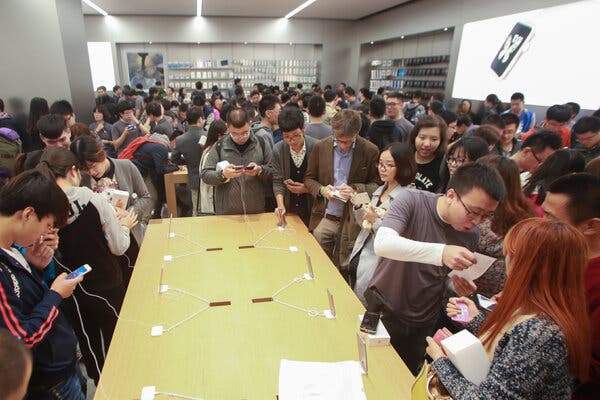Apple Closes First Store in China as Economic Challenges Persist

Apple Inc. will close its first retail store in China, located in Dalian City’s Parkland Mall, on August 9, 2023. This marks a significant shift for the company, which opened its first outlet in the country in 2008. The decision reflects ongoing economic struggles in China, where consumer spending has remained weak.
According to a statement from Brian Bumbery, an Apple spokesman, the closure is attributed to the departure of several other retailers from the Parkland Mall, including notable brands such as Michael Kors and Armani. Bumbery emphasized the company’s commitment to the Dalian community, assuring that “all of our valued team members will have the opportunity to continue their roles with Apple.”
The closure at Parkland Mall underscores broader economic challenges facing China. Despite government efforts to stimulate consumer purchases of products like smartphones and electric vehicles, the impact has been limited. Trade-in programs have encouraged some spending, but economists caution that this momentum may not be sustainable.
China is Apple’s second-largest market, yet the company has faced significant hurdles. Over the past six quarters, Apple has reported declining sales in the country. In 2022, total revenue from China reached $66.95 billion, a decline of nearly 10 percent from its peak of $74.2 billion in 2021. Competing brands such as Huawei and Vivo have increasingly captured market share, leaving Apple’s share of smartphone sales in China down to 15.5 percent from 17.9 percent the previous year, according to data from a tech research firm.
Despite the closure of the Parkland Mall store, Apple will maintain its other location in Dalian at the Olympia 66 mall. Additionally, the tech giant plans to open a new store in the southern city of Shenzhen later this month. With this new opening, Apple anticipates finishing the year with the same total number of stores—58—as it had at the beginning of 2023, despite the closure in Dalian.
As Apple navigates these challenges, the company’s strategies in China will be closely watched, especially as competition intensifies in the world’s largest smartphone market.






